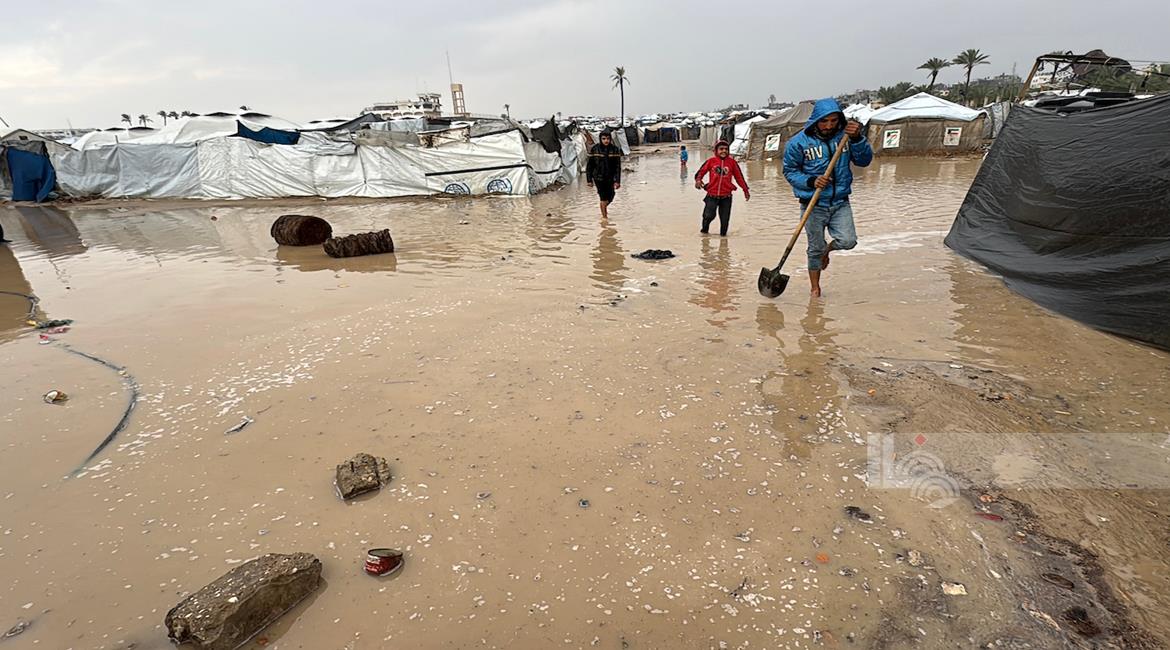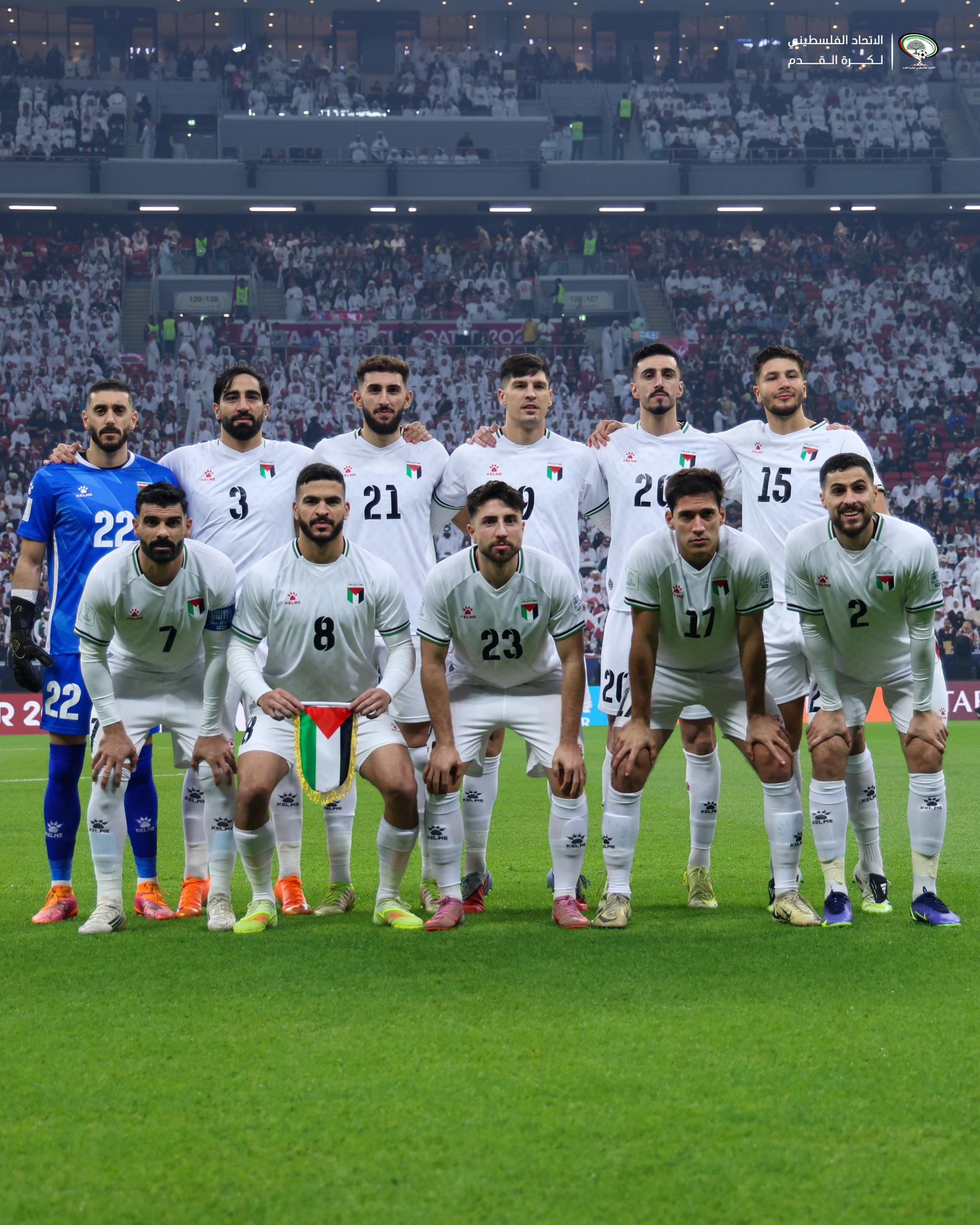GAZA, Saturday, May 11, 2024 (WAFA) – In tents deprived of the bare necessities of life, Palestinian mothers endure an indescribable tragedy in the non-residential area of Al-Mawasi, west of the city of Rafah in southern Gaza Strip.
After their homes were destroyed by Israeli warplanes, mothers, along with their families or what remains of them, were displaced to Al-Mawasi, an area devoid of water networks, electricity, sanitation, hospitals, or bakeries.
This region consists of sand dunes and farmland, where mothers grapple with the bitterness of losing loved ones, the agony of displacement, and the continuous devastation resulting from the brutal Israeli aggression since October 7th of the past year.
On Monday, May 6th, Israel announced the start of a military offensive in Rafah, dropping leaflets to approximately 100,000 citizens ordering them to evacuate the eastern part of the city.
On Tuesday morning of the same week, Israeli occupation forces seized the Palestinian side of the Rafah border crossing, halting the flow of aid into the territory.
This morning, Israeli forces expanded their ground and air attacks in all the provinces of Gaza, demanding the evacuation of residents from extensive areas in the north of the Strip, the center of Rafah, and penetrating the south of Gaza City and eastern Khan Younis.
This escalation included a series of fierce airstrikes resulting in dozens of casualties in various areas of the Strip.
Thousands of citizens were forcibly displaced from the center of Rafah, southern Gaza, to areas west of the Strip after Israeli forces warned of evacuating the area in preparation for expanding their military offensive in the city.
The UN Relief and Works Agency for Palestine Refugees in the Near East (UNRWA) estimated that 150,000 citizens were displaced from Rafah city after Israeli forces invaded the eastern part of the city, ignoring all international warnings.
Mothers long to return to their homes, even if they are in ruins, hoping to end their suffering caused by the continuous Israeli aggression on the Strip, which has resulted in the deaths of 34,971 civilians, mostly children and women, and the injury of 78,641 others, in addition to thousands of victims still under the rubble.

Inside one of the makeshift tents, Hanan Abu Jabal, 55 years old, a mother of eight children, feels profound sadness due to the loss of one of her sons in an Israeli airstrike.
The Palestinian mother, unaccustomed to the current suffering, finds herself displaced, deprived of water, electricity, cooking gas, beds, healthy food, or medicine.
"We live in extremely harsh conditions, where we find ourselves displaced and deprived of food, water, and clothing, facing the risk of genocide," says Hanan to Anadolu Agency correspondent.
She continues, "We are experiencing conditions we have never witnessed before due to this war on Gaza, where I lost my son, and losing a son means losing the soul."
According to the United Nations International Children's Emergency Fund (UNICEF), more than 14,000 Palestinian children were killed during the aggression on Gaza.
Like other women, Dina Mohammed, 55 years old, a mother, covers her face with her hand, tears streaming down her cheeks, as she gazes sadly at a dilapidated tent set up on the shores of Rafah.
"We were displaced from Shujaiya neighborhood since the beginning of the aggression, moving between several places before settling south of Wadi Gaza. Today, we live in harsh conditions, with extreme heat in the summer and severe cold in the winter, constantly exposed to danger from Israeli airstrikes and attacks from naval vessels," says Dina.
"We suffer from a severe shortage of drinking water, living in abject poverty, with a scarcity of food and basic supplies," she adds.
Among the displaced in Gaza, numbering approximately two million out of 2.3 million citizens, are over a million women and girls in the besieged territory for 18 years by Israel.
Difficulties are exacerbated for many women who have lost their husbands and breadwinners, continuing the journey of searching for food, providing for their families, and protecting their children.
With a broken heart and tears on her cheeks, 70-years-old Najah Al-Aqad says, "We moved from house to house and from one area to another. Now we find ourselves in a tent made of nylon that does not provide us with protection."
"We have lost our son during the aggression due to the bombardment, leaving behind three children. We live in harsh conditions; we have no food, water, or medicine," she adds.
Displaced mother Maha Khashan also lost her 9-year-old child in an artillery shelling that targeted their home, while her sister was seriously injured.
"I lost my child, endured the suffering of displacement, and we also suffer from a shortage of food and water. We lack cooking gas to prepare food and are forced to use firewood, which causes us significant negative effects on the respiratory system. We bring water from long distances for drinking," says Maha.
"We are in desperate need of stopping the aggression on Gaza, and we ask countries to provide the necessary humanitarian aid for us," she pleads.

Thousands of Gaza women give birth monthly, some without anesthesia, facing many health complications due to the collapse of the medical sector from the destruction of hospitals by Israeli forces and the prevention of fuel entry, and the interruption of electricity.
On May 7th of this year, Israeli occupation forces seized the Palestinian side of the Rafah border crossing, halting the flow of aid into the sector.
The Rafah land crossing is considered the lifeline for the people of Gaza, serving as the only land gateway for delivering aid and evacuating the injured, meaning that the humanitarian crisis is worsening.
M.N













